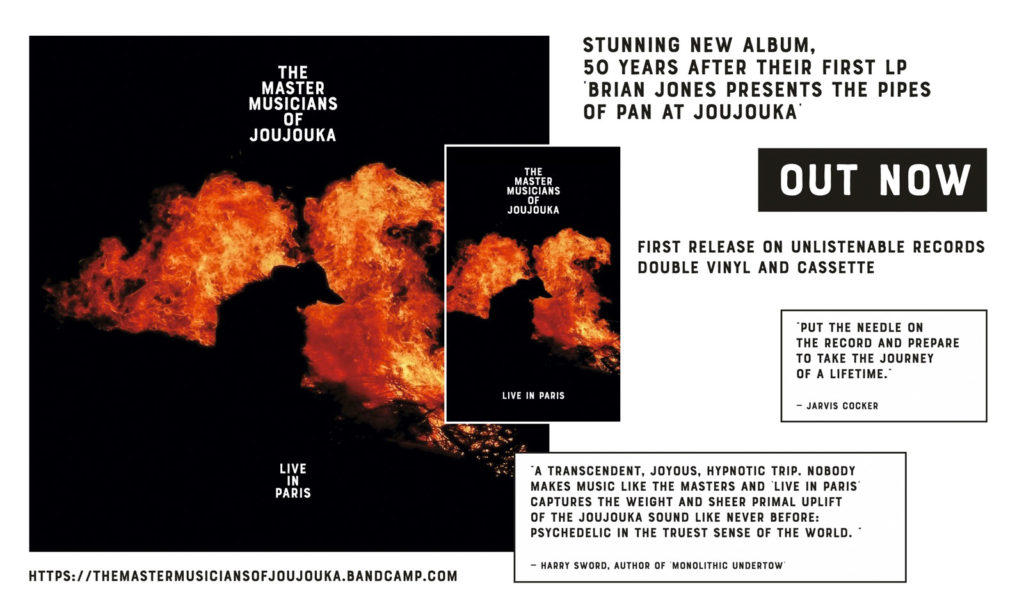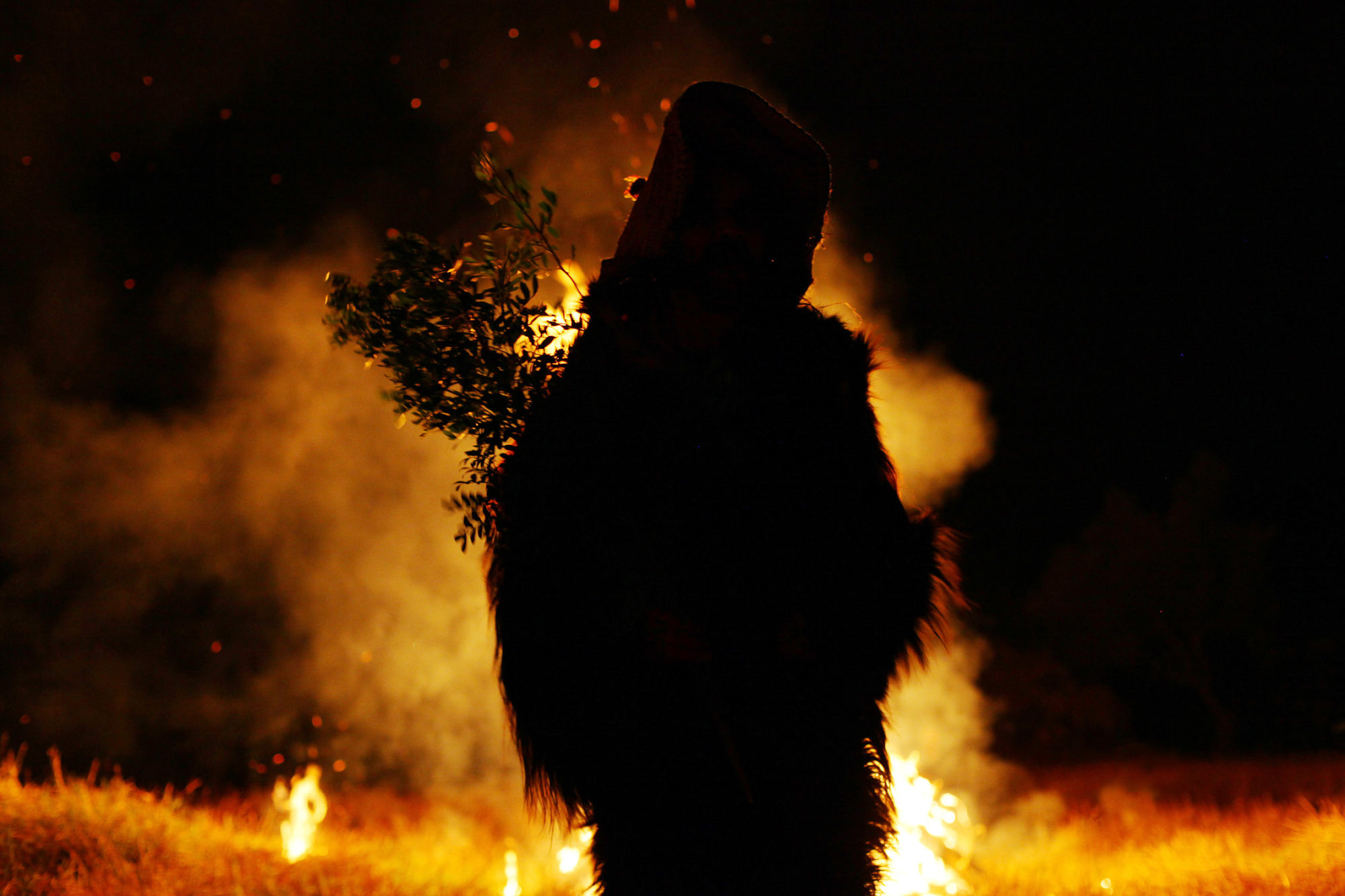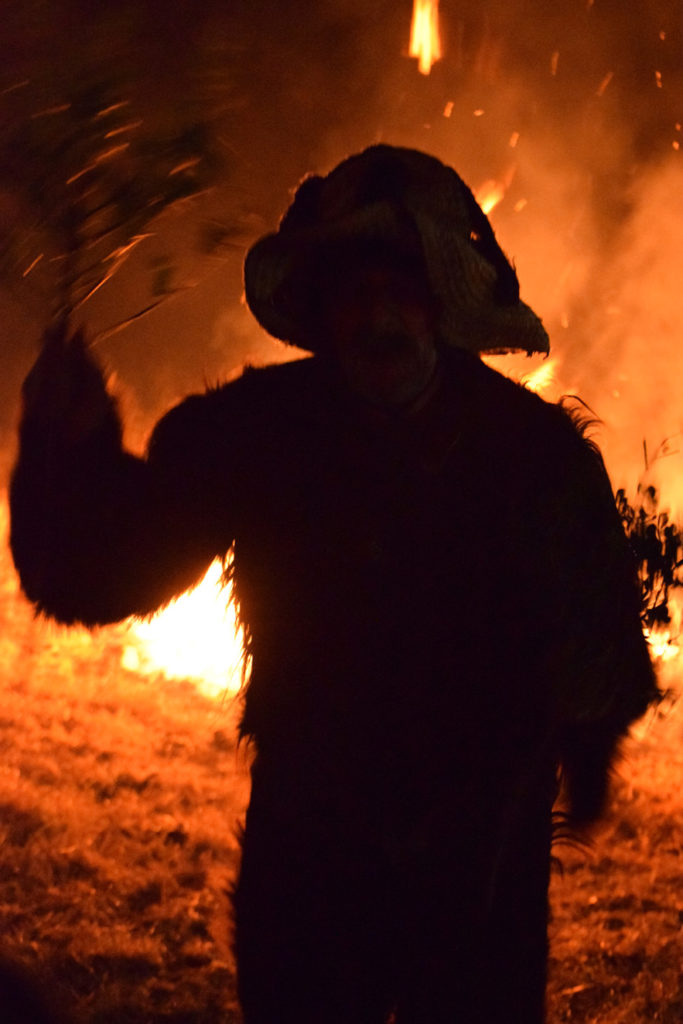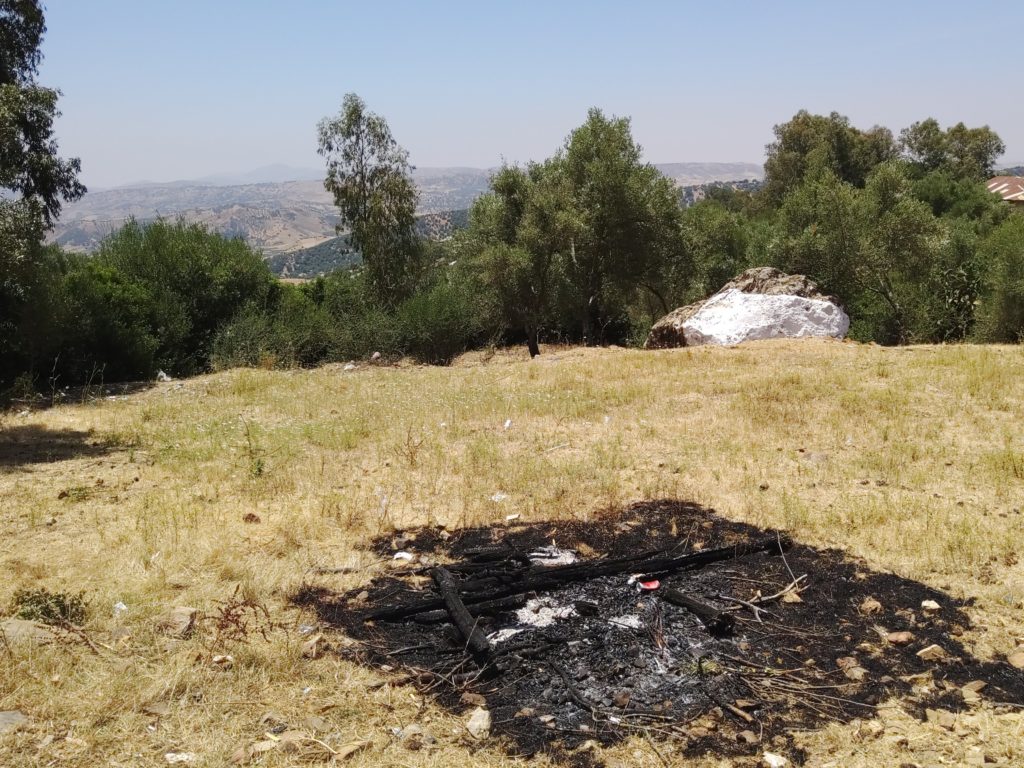
Listen to the epic double LP set ahead of this summer’s festival in Joujouka.
When the Master Musicians of Joujouka released Live in Paris one year ago the album provided much needed healing sounds during the height of the global Covid-19 pandemic.
At the time of the album’s release in April 2021 the Master Musicians had spent much of the previous year in lockdown and had been unable to work since March 2020.
The album recorded live at Centre Georges Pompidou, Paris was released by Unlistenable Records and available as a double vinyl gatefold set, limited edition cassette and download.
Live in Paris was released 50 years since their first LP Brian Jones presents the Pipes of Pan at Joujouka was released on Rolling Stones Records.
Read selected feedback compiled from press clippings for the record at the following links:
“These performances feel like a mythic transmission from antiquity… If you haven’t yet been able to attend the Master Musicians’ annual festival at home in Joujouka, this is the next best thing.”
Daniel Spicer review published in Songlines, November 2021 edition
“The Master Musicians of Joujouka are the greatest live band on the planet… They play for hours and the musicians and often the audience enter into some kind of ecstatic trance. It’s music that heals the soul… This is the closest you can get to experiencing them live yourself.”
Bob Baker Fish reports for Cyclic Defrost
“This pristine recording is the first to showcase the music with the appropriate fidelity. Within its intensity, Joujouka music is filled with nuance. Live in Paris captures the deep overtones of the drums, the gentle breathiness of the wooden lira flute, and the intergalactic wail of the double-reed ghiata pipes. Listeners can hear this music in all of its sonic and spiritual heft, roughly approximating the sound of a performance in the village.”
“It all has to do with baraka”
Brian Bowe reports for Aquarium Drunkard
“This album features the original Joujouka group and was recorded at a 2016 concert that was part of a Beat Generation exhibit at the Centre Pompidou in Paris. It begins with five relatively concise pieces running between four and nine minutes each, but concludes with a massive 44 minute performance of “Boujeloud”, a ritualistic suite performed in tribute to the god known elsewhere as Pan.
“Lead vocalist Abdeslam Boukhzar and backing vocalist Mustapha El Attar have died since this performance, which only adds to the feeling that one is hearing something not only ancient, but somehow imperilled. But when the music is surging and roaring around you, it’s hard to feel anything but thrilled and alive; somewhat surprising, given its desert origins, it can feel like being swirled around in the ocean.”
Phil Freeman in The Wire, July 2021 edition
“I’m confident in saying that nothing has kicked out the jams quite as emphatically as “Live in Paris,” which captures a 2016 concert at the Centre Georges Pompidou, held as part of an exhibition dedicated to the Beat Generation.
“Short of catching the group live, this is trance music in its purest form―sounds to lose yourself in, surrender to― and my only criticism of the vinyl edition is that you have to turn the damn thing over halfway through.”
Read the report by James Hadfield in full translated in Japanese and English at Ele-King
“Everyone was on their feet in the hall and by the end we had about 50 to 60 people on the stage. And the only two bands who have ever done that to the Pompidou were Suicide in the late 1970s and the Masters in 2016!”
Live In Paris producer and Master Musicians of Joujouka manager Frank Rynne talks to Harry Sword for The Quietus
“There are no side effects to this musical medicine – just a kind of bliss that makes the body and soul function at their highest potential.”
Mark Kidel for The Arts Desk

Frank Rynne, Master Musicians of Joujouka manager and the record’s producer, said: “Having worked with the Masters for nearly three decades I was holding off on producing a new LP until I was sure we could overcome the difficulties in recording this music where the group go from unearthly quiet tranquillity to being the loudest folk band on the planet. Live in Paris has achieved that. It is the first Joujouka album that has both perfect low-end drums and the delicate high end of the lead rhiata. It’s the best Joujouka album so far. This has been a testing time with the group’s live performances and the planned collaborative tour of Japan with The Orb postponed due to Covid-19. It’s time for this music.”
Ahmed El Attar, leader of The Master Musicians of Joujouka, said: “This is the best we have ever sounded on a recording. After a year of Covid lockdowns we are delighted to offer this healing music and pray it will help some people.”
Live in Paris is available now from all good record shops. Listen on Bandcamp
This summer the Master Musicians of Joujouka welcome guests to their village home in Morocco for the first time since 2019. The dates are scheduled for 3-5th June. For more information and booking visit here



